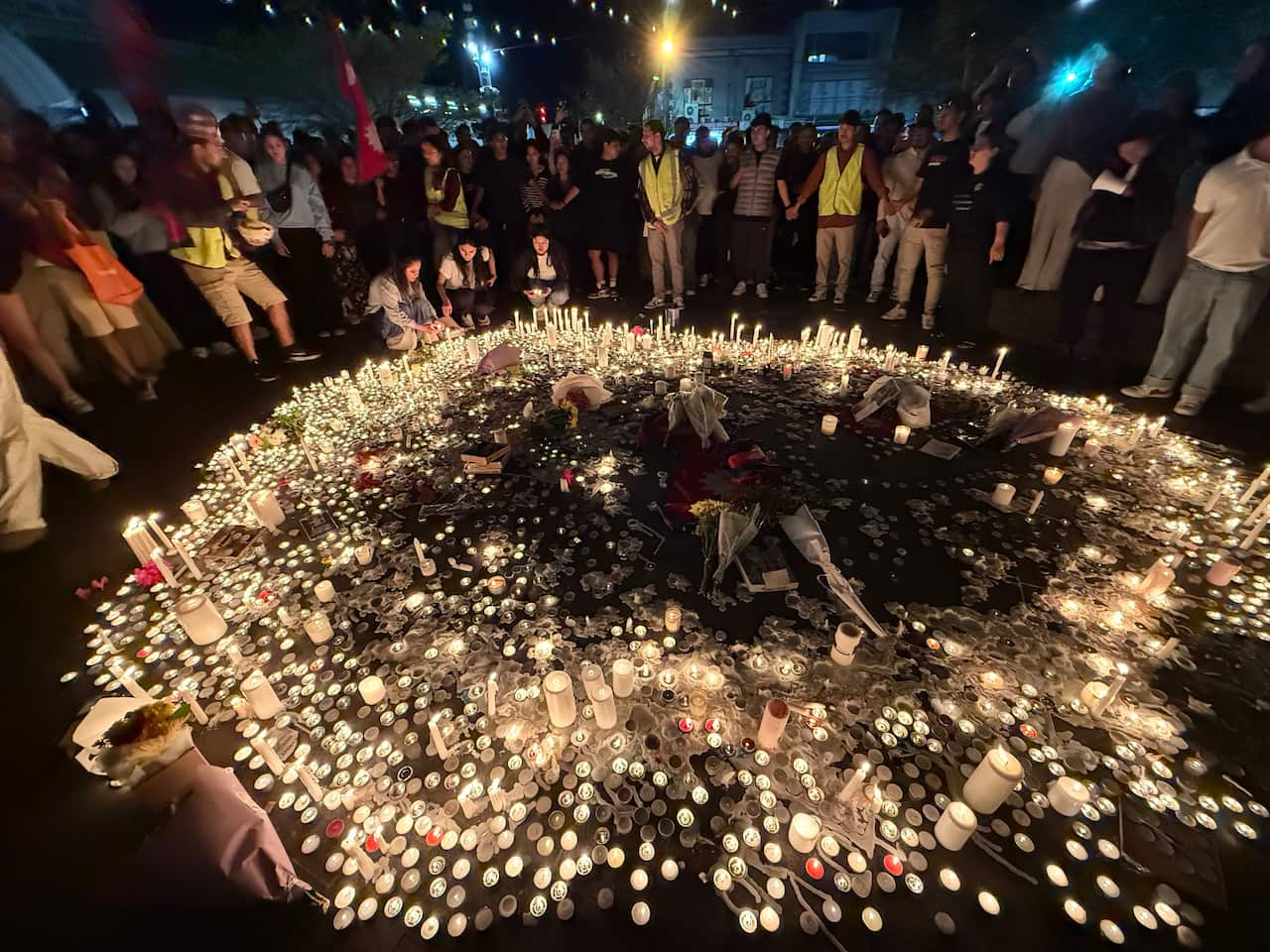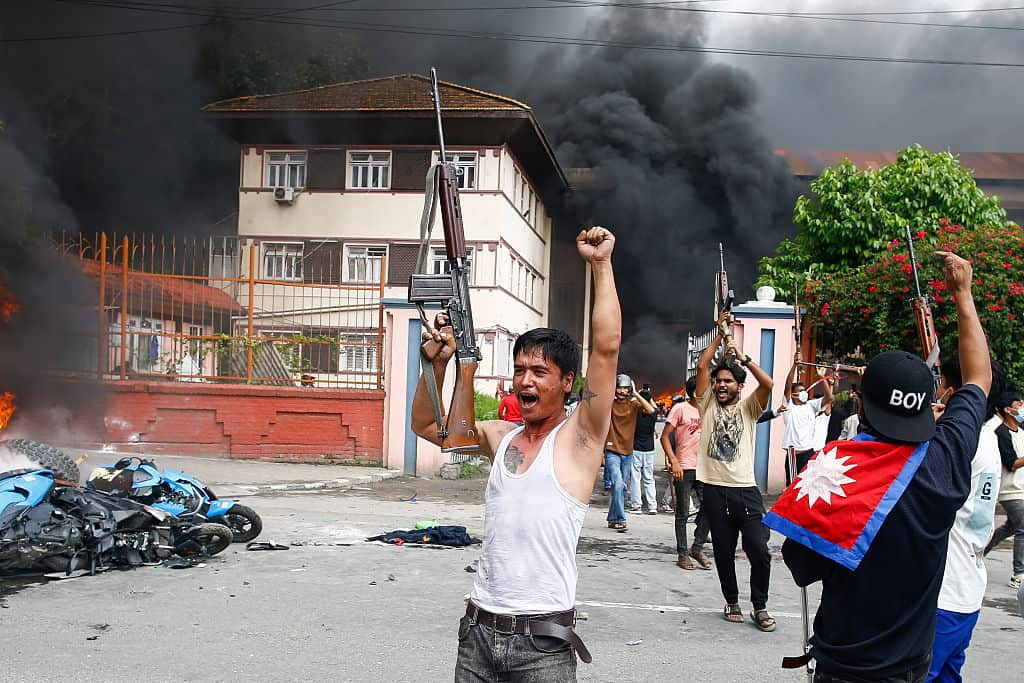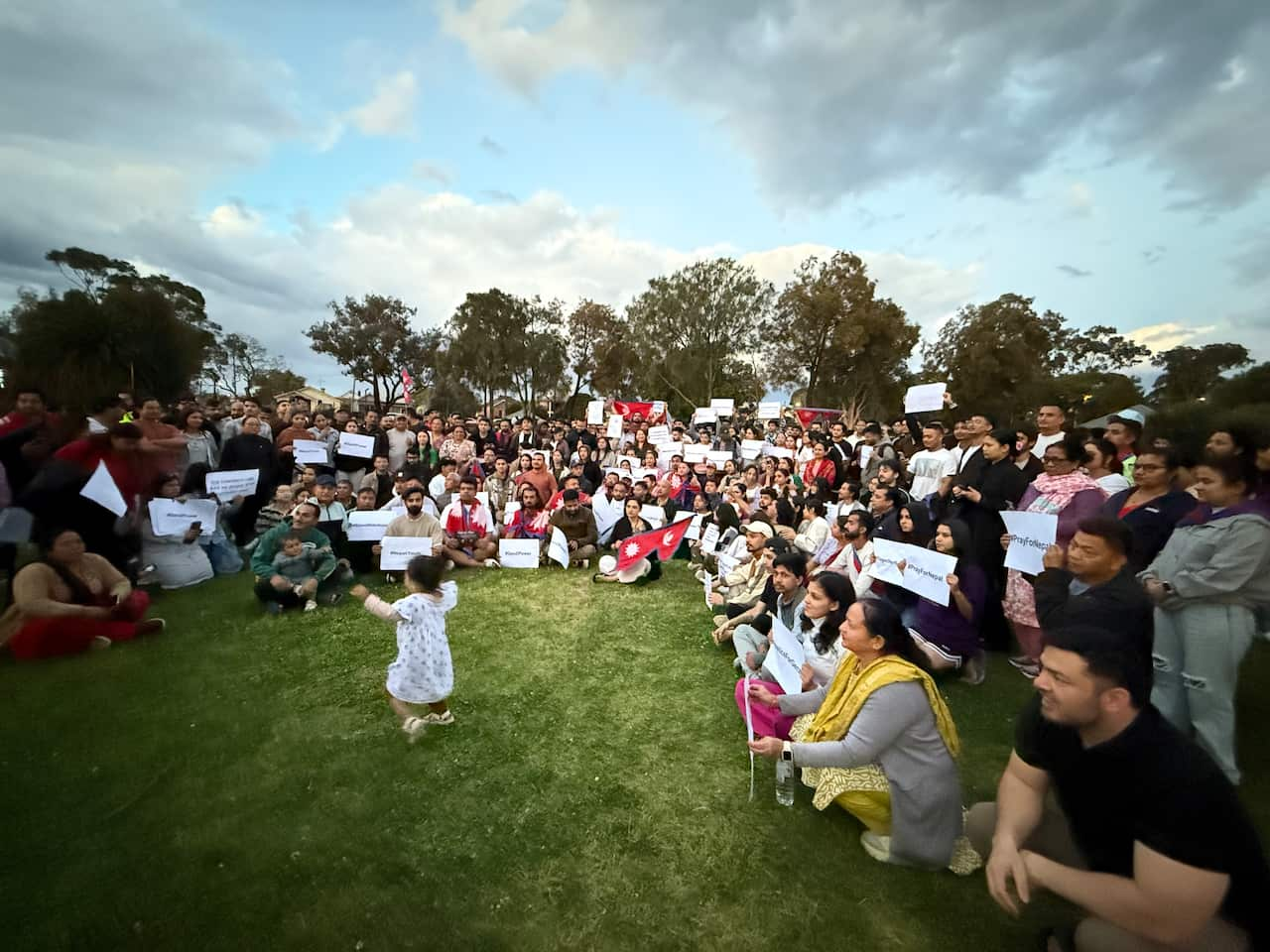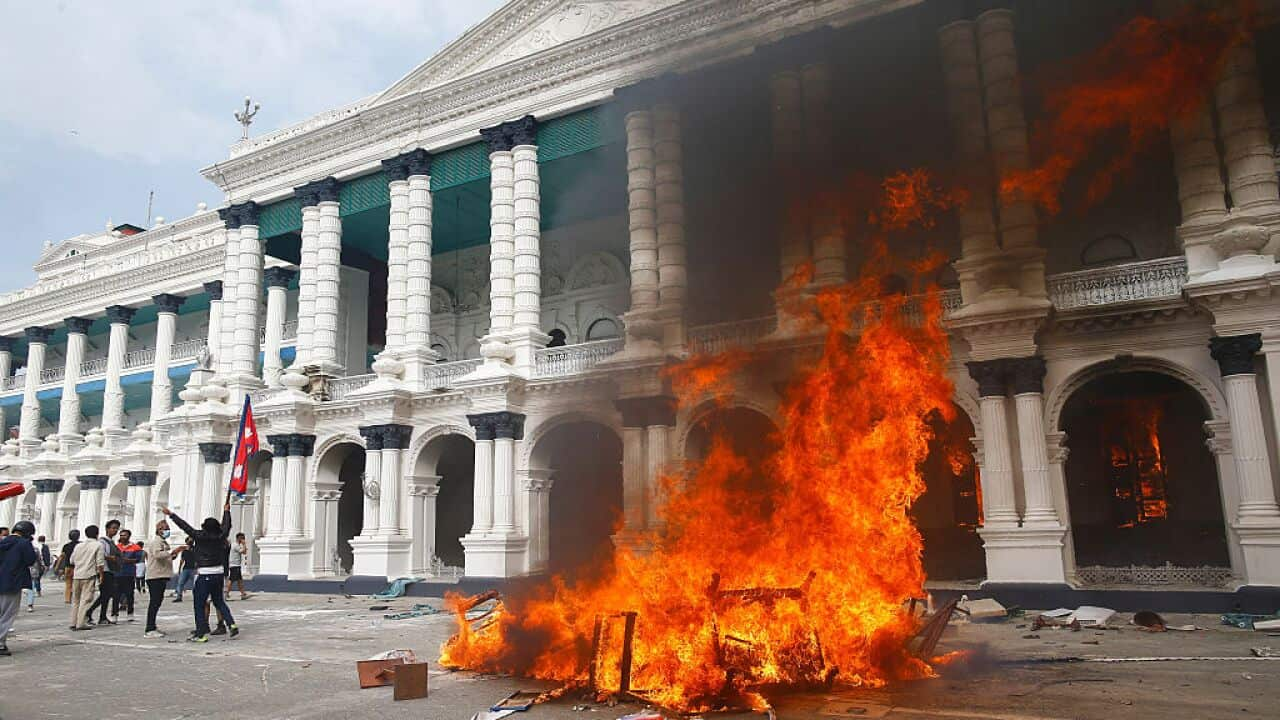Young members of Australia's Nepali community say they feel proud of the courage shown by youths protesting in Nepal but also angry at the violence, helpless watching from afar, and fearful of what comes next.
They also don't want gen Z to be blamed for the chaos, because while they're happy that Nepal's leader has resigned, they're distressed and dismayed at scenes of bloodshed.
Nepal is facing its worst unrest in decades after anti-government protesters set fire to parliament and leaders' homes, prompting Prime Minister KP Sharma Oli to resign and go into hiding as the military took control.
The protests, first sparked by a now-overturned social media ban, have left at least 22 people dead and more than 100 injured.
Vigils were held across Australia this week, where thousands gathered in Melbourne and Sydney to grieve and show solidarity.

Simran Kaur, who moved to Australia when she was 18, felt heartbroken watching the horrific scenes in Nepal, yet she remains hopeful for change.
"All the videos and news would just make us cry. I was really surprised to see so many people coming in altogether there. That unity filled my heart and gave me hope," the 25-year-old told SBS News.
Kaur said she was "proud of all the brave youths fighting for their rights" but said it was "very scary to see people dying in the fight".
"It just makes me feel so helpless," she said.

Arya Pratap, 20, who has been living in Melbourne for nine years, said Australia's Nepali community was feeling "frustrated" that calm and peaceful protests so quickly turned violent.
"Police are here to protect us rather than shoot the people who are trying to fight for their rights," he told SBS News
"At the start, people were much more hopeful. Now that hope has transferred into fear, which has really broken our hearts."
Gen Z were 'strong enough' to fight
Nepalis say years of corruption and lack of opportunities, especially for young people, have fuelled the protests — not just last week's short-lived social media ban.
Viral TikTok clips since the ban, showing wealthy politicians' children flaunting luxury goods and expensive holidays, have further fuelled the anger.
"The main reason youths are protesting is because they have to travel to different countries to further their study and find work," Pratap said.
Kaur said gen Z should not be blamed for the chaos in Nepal; they were simply passionate and angry enough to fight for change.
"Older people laughed at gen Zs thinking, saying what can you do? Millennials, they have families, they don't want to risk it," she said.
"Gen Zs were strong enough to say: 'If it means being killed to change this, I'm happy to' … If we don't do this now, it's never.
"We didn't know that gen Zs coming together could be this big and would actually lead the prime minister leaving."
Ronak Parajuli, 21, who has been studying in Sydney for three years, said many members of the older generations support the fight of the young.
"Everyone is supporting and looking for freedom of speech … there's a lot of corruption, not many jobs, and nepotism everywhere," he said.

Pratap said the unrest has now drawn in people of all ages, with some exploiting the chaos by burning properties and looting, which was making the situation worse.
"Goons are taking advantage. Prisoners are breaking out, people are stealing, people are vandalising. It's slowly going backwards," he said.
Kaur said: "This is not what we wanted."
'We want a new generation in government'
What comes next for Nepal is uncertain, but analysts say a solution must satisfy young Nepalis.
The United Nations high commissioner for human rights, Volker Turk, has urged security forces in the country to avoid further bloodshed and listen to the country's youth.
"It is important that the voices of young people are heard. Protesters have the right to express peacefully their political frustrations and grievances over corruption and a ban on social media platforms," he said.
Analyst Ashish Pradhan from the International Crisis Group, an NGO that works to prevent and resolve deadly conflict, said a "transitional arrangement will now need to be charted out swiftly and include figures who still retain credibility with Nepalis, especially the country's youth".
Balendra Shah, a 35-year-old engineer-turned-rapper who was elected mayor of Kathmandu in 2022, is one possibility.
"We want a new generation in government. Not like the old generation," Parajuli said.
Pratap said Nepal needed "a leader with a vision" and regular elections.
"People in charge are trying to hold the country rather than grow the country," he said.
"But everyone has different opinions on who our new leaders should be."

Kaur said while the prime minister's resignation was "a small victory", young Nepalis in Australia remained scared.
"We don't want the wrong people to take power," she said.
The Australian Nepali community is raising awareness and money for medical aid while calling for peace.
"We just want everything to calm down. I just want people to just stay safe and focus on what an interim government would look like," Kaur said.
"I just hope the future is going to look better than the past, that the sacrifices we've made will be for the good."
This story was produced in collaboration with SBS Nepali.
For the latest from SBS News, download our app and subscribe to our newsletter.

